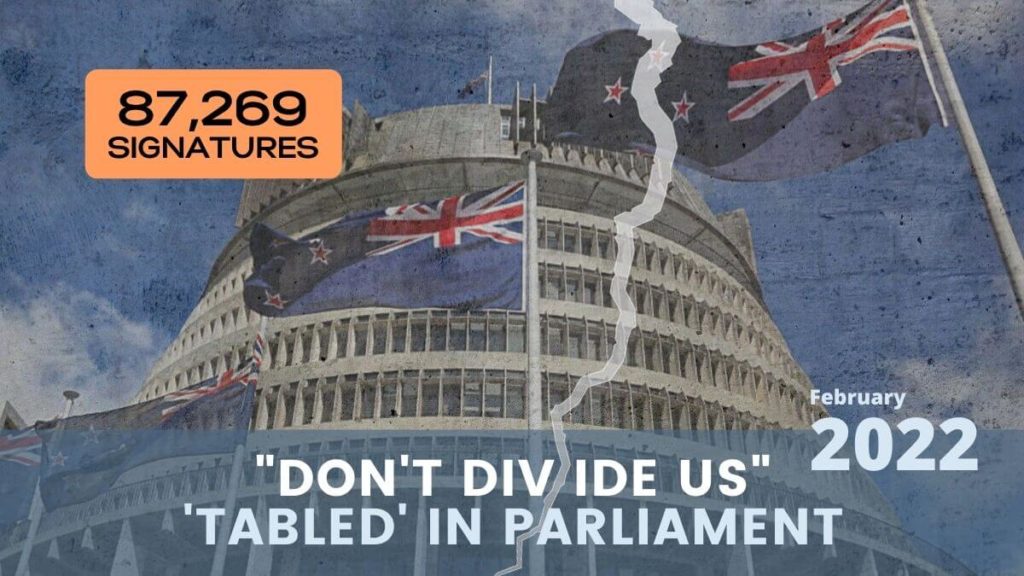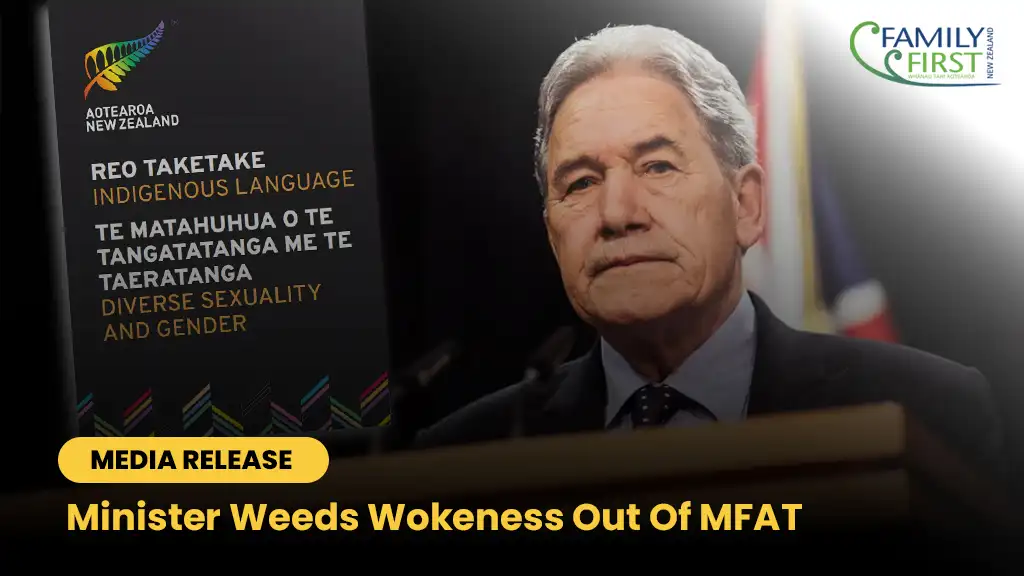The petition “Don’t Divide Us.nz” which has 87,269 signatures, has today been tabled in Parliament.
The petition which was launched at the beginning of November last year says “We oppose the ‘no jab no job’ policy, which will create a divided New Zealand. We call on the Government to allow the use of COVID rapid antigen testing as an alternative for unvaccinated kiwis to access workplaces, schools, marae, large gatherings, and places of worship.”
When we first launched this petition three months ago, the Government had succeeded in keeping the viable option of rapid antigen testing very quiet – partly because they had all but banned its use under the COVID-19 Public Health Response (Point-of-care Tests) Order 2021 (and despite its increasing and effective use overseas).
But nationwide polling found significant support from New Zealanders for regular testing to be allowed as an option so that kiwis can keep their jobs. Just 27% were opposed (including 30% of those who were already double jabbed).
While both sponsors of the petition are double-jabbed and support the vaccination programme, they are justifiably concerned that New Zealanders are being excluded from their teaching or nursing job, sporting career, going to their marae, going to church or the mosque or the gym or hair salon, university to study, weddings, visiting family members in prison, attending events – and there are many other examples – because they have chosen out of good conscience not to be vaccinated.
We are looking for a reasonable and workable middle ground that doesn’t divide the country and set family members against each other.
As we now observe, the Government has finally come around to acknowledge what we have been saying for the past couple of months – and is the reason many vaccinated people also signed the petition – that rapid antigen testing is an important tool in the fight against COVID. This is certainly not an “anti-vax” petition as some will attempt to label it as.
In fact, with what we now know about the Omicron strain evading both vaccinations and immunity, transmission and the importance of testing, and the likely impact on workplaces throughout New Zealand, employers are now crying out for workers. They’re also crying out for rapid antigen tests.
We support the use of vaccines, in principle, but we are anti-mandates because they discriminate against people because of their personal health decisions made in good conscience.
The US Supreme Court recently blocked President Joe Biden’s rule requiring workers at large companies to be vaccinated or masked and tested weekly. Note that the US mandate was already less stringent than ours. NZ’s government only allows for double vaccinations, and doesn’t have the weekly testing option! Yet the more flexible US version still got struck down. The majority decision (6-3) said:
‘[The mandate] draws no distinctions based on industry or risk of exposure to COVID–19. Thus, most lifeguards and linemen face the same regulations as do medics and meatpackers… This is no ‘everyday exercise of federal power’ … It is instead a significant encroachment into the lives—and health—of a vast number of employees.‘ ‘Although COVID– 19 is a risk that occurs in many workplaces, it is not an occupational hazard in most. COVID–19 can and does spread at home, in schools, during sporting events, and everywhere else that people gather… That kind of universal risk is no different from the day-to-day dangers that all face from crime, air pollution, or any number of communicable diseases.‘ ‘OSHA’s indiscriminate approach fails to account for this crucial distinction— between occupational risk and risk more generally—and accordingly the mandate takes on the character of a general public health measure, rather than an ‘occupational safety or health standard.” (our emphasis added)
Let’s get the country working – together again – in a unified way – as we battle the challenges of COVID-19 and Omicron.
[In December, a large group of 15 applicants representing 110 Church congregations and 2 Mosques with over 26,000 congregants filed in the Wellington High Court an application for a Judicial Review on the church vaccine mandate. When Governments use regulations to impose restrictions on important rights to protect us from a pandemic it is important that they show the restrictions they put in place are the least restrictive means available to achieve their goals. During lockdowns last year churches were happy to comply because it was important to keep everyone safe. However, now that rapid testing is available to allow for domestic travel – and now some overseas travellers, and now that schools can open when adopting safety measures, churches believe the same options should be available to them. The case will be heard in a fortnight.]




